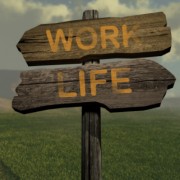Blissfully Ignorant or Blissfully Aware?
Is ignorance really the key to bliss? Is it awareness? Or is it, perhaps, a combination of the two?
In last week’s blog, we discussed the benefits and drawbacks of being aware or ignorant about certain information and why it’s important to deliberately manage a balance between the two. But how do you know when knowledge is power and when it can be disempowering?
Here are some questions to ask yourself when deciding whether you really want to know more:
Is this information true?
Benjamin Franklin once said,
“Believe none of what you hear and only half of what you see.”
Most of the information we use to make decisions is not based on fact. It is based on our interpretations and opinions about what we observe and what others tell us about their own observations. In today’s tech-driven, social-media-connected society, very little of what we hear (or read) is factual. In fact, much of it is actually based on incorrect facts. Yet, a frightening number of people believe not only everything they hear on the news but everything they read on Facebook as well.
“Believe none of what you hear and only half of what you see.” Most of the information we use to make decisions is not based on fact. It is based on our interpretations and opinions about what we observe and what others tell us about their own observations. In today’s tech-driven, social-media-connected society, very little of what we hear (or read) is factual. In fact, much of it is actually based on incorrect facts. Yet, a frightening number of people believe not only everything they hear on the news but everything they read on Facebook as well.
Before taking action on information, think about it for yourself. Do some research. Gather more information before forming your own opinion. It may not always be possible to be certain whether a piece of information is true, but an equally important question is whether or not it is true to you—to what you think, who you are, and what you’re about.
Is this information empowering?
Some information simply has little to no positive value in our lives. Some knowledge can be depressing (often because there’s simply nothing we can do to change it), disempowering, and even dangerous. For instance, consider the images we see of models and celebrities, with their perfect bodies and faces. We start to wonder why we don’t look like that. The truth is that they don’t look like that either. Without strategic lighting and Photoshop, most of them look more like us than their pictures. And so we have this culture where people starve themselves to lose weight, teenagers get breast implants, and people literally get addicted to plastic surgery—all in pursuit of an unattainable standard of beauty.
Remaining ignorant of these undermining, disempowering conversations and similar information could certainly be blissful—and even beneficial. When we’re not inundated with other people’s ideas, standards, and values, we can start thinking more clearly for ourselves. We can take a stand for who we are and what we value.
Is this information useful?
It’s important to be aware of information that is useful to you—not just what makes you feel good but what you need to know in order to achieve your vision for your career, life, or even your family.
When my oldest daughter (who is now twenty-four) was preparing to enter high school, my wife and I started to think about what we believed was best for her. We had conversations among our social networks (mostly upper-middle-class people like us). Like many parents, we wanted a certain kind of success for our daughter. So we convinced ourselves and her that she should go to this highly-academic private school, where they raved about their statistics for how many students ended up in the more prestigious, high-earning professions like medicine and law.
My daughter suffered the whole year. It wasn’t the right place for her. Regretfully, it took us a few months to wake up and realize we were totally hypnotized by standards that had nothing to do with what was best for her. We, like many people, were in this rat race of standards and keeping up with the Joneses. And we hadn’t realized that before. We just thought we were looking out for her best interests. So we took her out of the school and placed her in a local school where she blossomed and did very well. I still see many people in our social circles that are still caught up in the same predicament.
Success, achievement, and happiness are concepts we should define for ourselves—based on our values, our visions of our lives, and what we truly want. It takes awareness to get off the bandwagon of keeping up with the Joneses. It also takes courage—to stand up for what you believe and to think for yourself. It’s much easier to just go with the flow. But when it comes to important, life-defining decisions, ignorance is not bliss. It’s a curse.
In next week’s blog, I’ll discuss the areas of our life and work where we definitely want to be aware—and the questions to ask ourselves to ensure we aren’t operating in unintentional ignorance.











Leave a Reply
Want to join the discussion?Feel free to contribute!